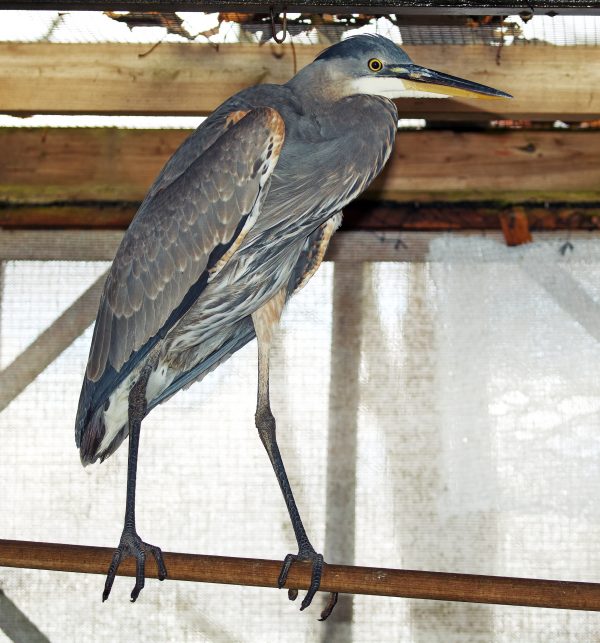Support Us
Since 1979 more than 140,000 animals have been treated by Wildlife Rescue.
Thanks to the support of individuals like you, Wildlife Rescue can provide a lifeline for animals in distress.
A magnificent sight on British Columbia’s coastline, Great Blue Herons are a symbol of the brilliance of nature. With their wide wings, “S” shaped necks, beautiful grey-blue feathers and their peacefully still stance in the water, these birds are a joy to witness.
A Great Blue Heron was admitted to Wildlife Rescue’s Hospital after being found trapped in twine and hanging from a tree. After being treated with pain medication and given time to rest, this Great Blue Heron was able to be released back to nature where it belongs.

Great Blue Herons nest in trees, typically high up from the ground. These nests, which are constructed of sticks, are made by the males to attract their mates. The females will often pad the nest with materials such as moss and grass to make the nest soft for their young. Great Blue Herons breed from February to May in colonies (or heronries) in B.C., and migrate south during Winter to avoid cold weather.
Their long necks and sharp beaks are made perfectly for grabbing food in the long grasses and rushing rivers they inhabit. These incredible birds have a neat trick to eating food: they gulp it whole – swallowing fish, and frogs in one bite!
Although the Migratory Bird Act protects these herons, they face many dangers every year. Deforestation has made finding suitable nesting areas a challenge for these birds. Water quality is also of extreme importance as they rely on water to find their food, but an increase in water contaminants is causing concern.
How can you help Great Blue Herons?
If you see a heron that has exposed bone or blood, bugs or insects covering it, no feathers, or a heron that is sleeping, human intervention is required. Please contact our Support Centre for assistance.